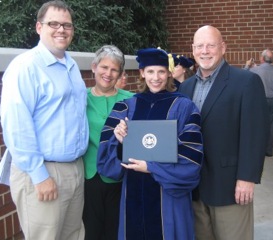Eric Glover continues the discussion of the Trinity:
First I just want to say that I’m not arguing for or against the
traditional understanding of the trinity in this post, I just merely
want to engage the applicability of the aforementioned rule, that if
“X” cant exist in the mind then “X” cannot be believed, to biblical
belief in any doctrine.Steve previously said:
“To believe something, one must first think it; if something cannot exist in the mind, it is incapable of being believed.”
Steve, I see where you go with your argument but I don’t find it
convincing. Your telling me that as long as something can exist in my
“MIND”, that is the only way it can be believed? what does that mean
exactly? To what extent do I have to understand to believe? Can I even
really believe in God at all then? Even though “I Believe” what the
bible says about him I cannot at all conceive of where he is right now
or that he is Omnipresent, Omniscient ect. If I thought about so much
of that long enough and applied your logic then up in the air go both
my hands with the concept of God at all.what about a new christian who has hardly any concept of who God is
in greater detail but yet they still believe? I think your definition
of what constitutes belief seems to fit better with non-biblical belief
in non-biblical items. I don’t think this same logic should be applied
to holy writ.The Gospel is the power of God unto salvation, right? why is it that
I cannot convince a non-regenerate to believe and persevere to the end
with my “own” words of wisdom? That’s because God alone is the only one
that can truly change a heart, not me. Without the Holy Spirits
ministry in the process of salvation we would not be able to come at
all because our minds are still darkened in their understandings (Eph
4:18). I understand that the prior post wasn’t intended to be
explaining in detail salvific belief, I just don’t feel that belief in
anything biblical can be put on the same shelf with “HOW” we believe
anything else.Steve, I fundamentally struggle with the idea that something in the
“BIBLE” has to be conceptualized intellectually before belief of it can
be true.–More to follow–
In Christ we stand!

